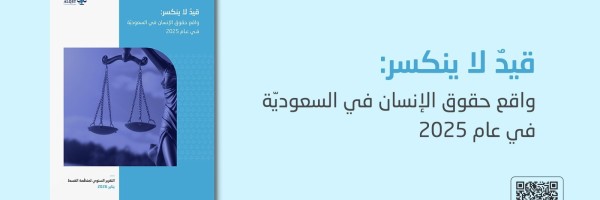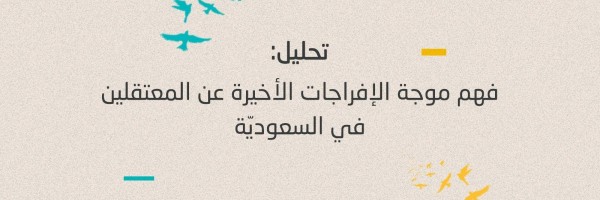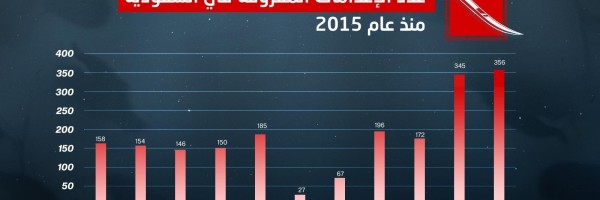ALQST is seeing mounting evidence of a deliberate campaign by the Saudi authorities to jeopardise the safety, health and even lives of certain prisoners of conscience, through medical neglect and reckless manipulation, in addition to constant harassment and denial of family visits.
After two high-profile deaths in custody in recent memory – the death by medical neglect of Abdullah al-Hamid in April 2020 and the murder of Musa al-Qarni, apparently by religious extremists, in October 2021, as well as the mysterious deaths of Zaheer Shareeda in May 2021 and Saleh al-Shehi, shortly after his unexpected release, in July 2020 – ALQST is now gravely concerned for several others who are apparently being treated in the same way. This briefing provides an update on their situations.
Dr Mohammed al-Qahtani, one of the founders of the Saudi Civil and Political Rights Association (ACPRA) and a recipient of the Right Livelihood Award, has repeatedly been denied access to reading matter, to which every prisoner has a right, as well as medication that he needs (eye drops and vitamins), causing him to have dry eyes. The prison administration has also neglected to provide treatment for a skin disease he suffers from that has become much worse as a result. Despite the administration’s promises to look into the matter and resolve it, nothing has happened. He has also been taken repeatedly to the prison hospital for tests, but every time he gets there he is sent back to the prison on the grounds that there are no appointments available. Al-Qahtani’s family, meanwhile, have their phone calls with him closely monitored, and the prison administration deliberately cuts them off if they speak in a language other than Arabic.
The prison administration is also still dragging its feet over moving al-Qahtani out of his current cell in what is effectively a psychiatric ward. He has previously reported a number of incidents where his safety was compromised and his life was threatened, such as when a fire was started on the wing, or when the prison administration deliberately placed him among inmates infected with coronavirus.
Since his arrest in September 2017, preacher Salman al-Odah has been treated harshly in detention. The Saudi authorities have persistently failed to either release him or bring his case to court. According to ALQST’s information, al-Odah has lost half of his eyesight and half of his hearing because of medical neglect, and it is believed that the authorities are hoping to slowly kill him. Visits have become intermittent: he may be granted a single visit every two or three months, and he has not had any phone calls for two years.
Al-Odah has been charged with 37 offences including failing to pray for the king and inciting society against its rulers. The Public Prosecutor has called for the death penalty against him.
ALQST received word that Abdulrahman al-Dowaish – son of the preacher Sulaiman al-Dowaish who has been forcibly disappeared since 2016, and brother of Abdulwahhab al-Dowaish, detained since August 2021 – was moved to intensive care on 24 December 2021 after a tumour was found in his lower abdomen as well as symptoms of low blood pressure and diabetes. As far as ALQST knows, he was not suffering from any of these issues prior to his arrest on 18 October 2021. The latest news is that Abdulrahman has been brought back to prison, although nothing is known about his current state of health, and that the prison administration refused to let him stay in hospital, which makes ALQST fearful that the Saudi authorities are neglecting his health on purpose.
Veteran prisoner of conscience Khaled al-Omair has also suffered a great deal of harassment in prison, as well as administrative neglect that somehow allowed an attempt to be made to kill him. The attempt on his life took place on 7 July 2021, and instead of the prison administration opening an investigation into the incident, the authorities brought new charges against al-Omair, as well as increasing his prison sentence in August from seven years to nine.
Al-Omair was arrested in June 2018 after filing a complaint with the Royal Diwan against those responsible for his being tortured during a previous eight-year prison term. He was detained without charge for many months, and went on hunger strike in protest. He eventually appeared before the Specialised Criminal Court (SCC), the Saudi terrorist court, on 8 September 2020.
In addition to all of this, ALQST has noticed that the Saudi authorities are deliberately delaying the process of renewing prisoners’ ID cards when they expire, which can cause delays for their families in getting hold of financial payments they are due. Some families have had to wait two months.
ALQST urgently calls on the international community to set up an expert legal commission to visit and interview prisoners of conscience in Saudi Arabia, listen to them, and investigate their situation, in order to ensure their safety and ensure there is no repetition of what happened to Abdullah al-Hamid, Musa al-Qarni and Zaheer Shareeda.




